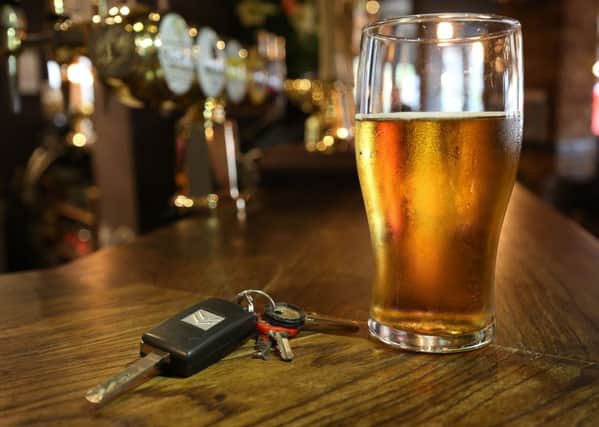Study finds millions still accept a lift even when driver is drunk


However, Scots are the least likely to have done so, with just 38 per cent of people admitting to accepting a lift from someone who had been drinking, compared with 42 per cent UK-wide.
A fifth of these passengers said they made no attempt to stop the drunk or suspected drunk-driver from remaining behind the wheel, according to new research from Direct Line Car Insurance.
Advertisement
Hide AdAdvertisement
Hide AdSome 29 per cent of passengers said they did not know the driver was intoxicated until it was too late, and the journey had begun.
A further 13 per cent spoke to the driver before getting in the car and made their own judgment on whether the person was safe to drive. One in nine told the driver to not get behind the wheel before the journey started, but still made the final decision to ride in the car after being ignored.
The study also found that a third of people said they did not take any action because they were also intoxicated.
Valuing their relationship with the person behind the wheel above their own potential safety was reported by many people as the motivation behind not saying anything to the driver.
One in eight admitted that, despite knowing they were in potential danger, they did not want to upset the driver, while one in nine were concerned it might damage their relationship with the person.
Rob Miles, director of car insurance at Direct Line, said: “Driving under the influence is extremely dangerous for drivers, passengers and all road users.
“Everyone has a different tolerance to alcohol and this can be changeable, so it is difficult to judge if you are under or over the limit after just one drink. While you may feel fine, your reaction times will be slower, and the risks of an accident are significantly increased … we are very clear with our advice to not drive at all if you’ve had one drink.”
He added: “If you are caught for drink-driving, you risk prosecution and potentially a driving ban.”
Advertisement
Hide AdAdvertisement
Hide AdOnly 4 per cent of adults said they would contact the police immediately if their partner was driving under the influence, while only 5 per cent of parents said they would report their child. However, people said they were more likely to call the police if they suspected a stranger was driving while intoxicated, with a third saying they would do so.